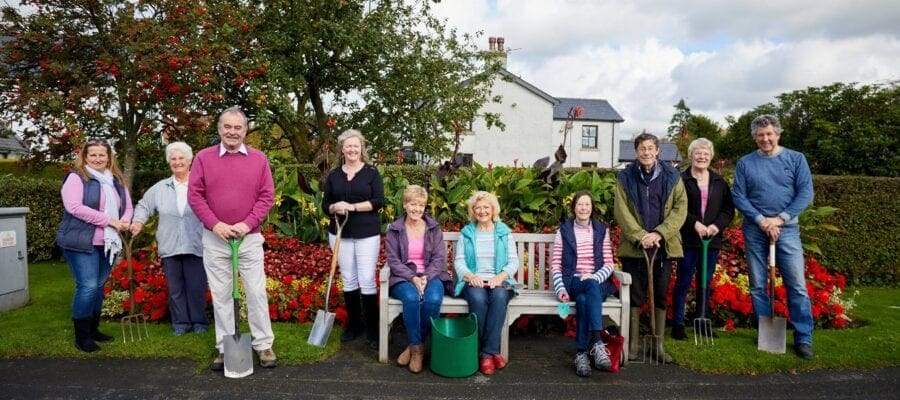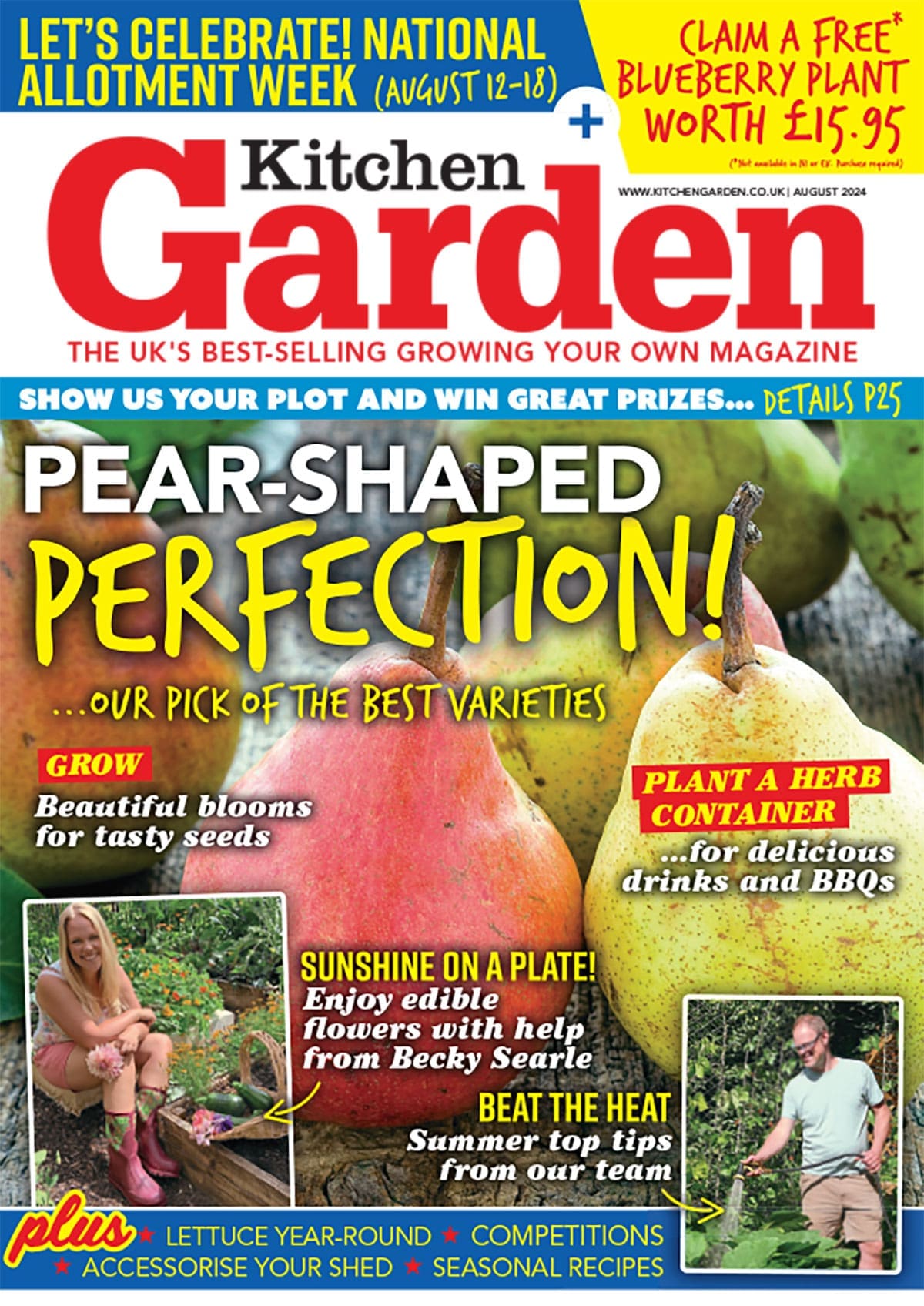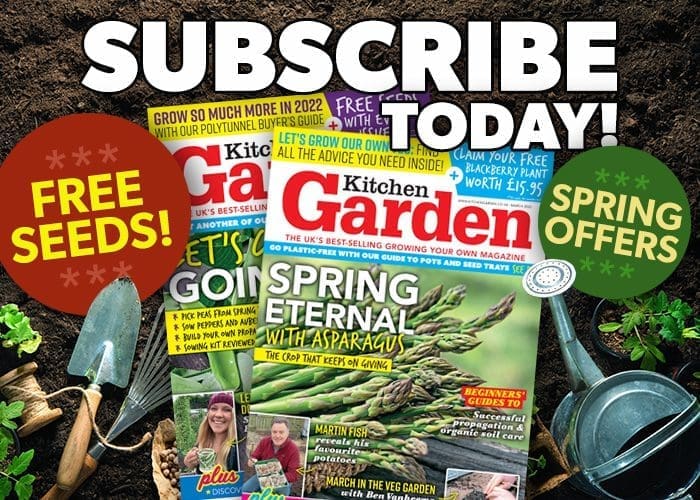Subscribers can catch up with proud villagers, portly pigs, clever birds, and November updates from seed potato growers and beekeepers
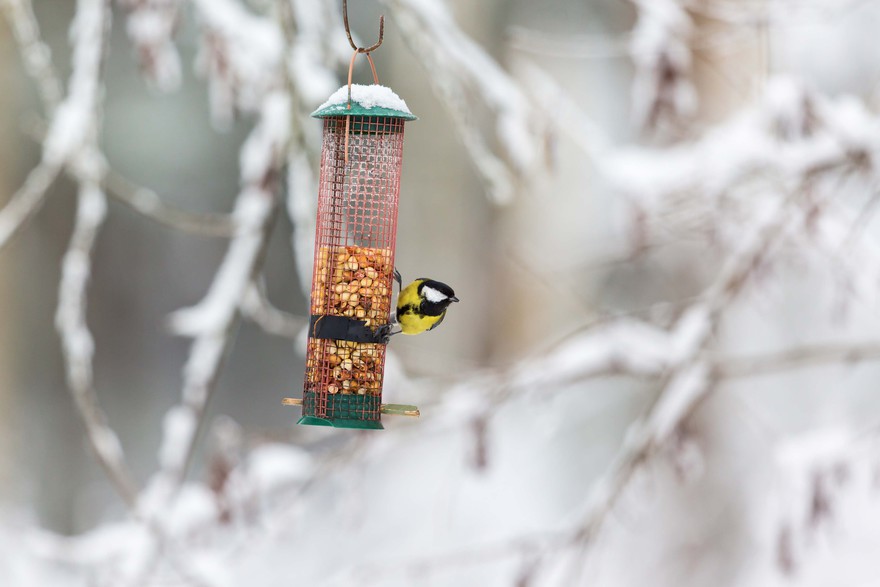
Birds evolve to exploit feeders
Certain British birds are evolving longer beaks, and new research suggests that this may be due to our fondness for feeding them.
The findings, published in Science, are part of a long-term study of great tit populations in Wytham Woods in Oxfordshire and two sites in the Netherlands. The latest research, a collaboration between scientists at the University of Oxford and other British and Dutch institutions, screened DNA from more than 3000 British and Dutch birds to find genetic differences which might indicate the workings of natural selection.
Oxford researchers have been studying Wytham Woods great tits for 70 years, so the team had access to historical data which showed that the British birds’ beaks were getting longer over time. They were also able to access data from electronic tags fitted to some of the birds, which enabled them to track how much time was spent at bird feeders. Birds with genetic variants for longer beaks were found to be more frequent visitors to the feeders.
“In the UK we spend around twice as much on birdseed and bird feeders than mainland Europe – and we’ve been doing this for some time. In fact, at the start of the 20th century, Punch magazine described bird feeding as a British national pastime,” says Dr Lewis Spurgin of the University of East Anglia. “Although we can’t say definitively that bird feeders are responsible, it seems reasonable to suggest that the longer beaks among British great tits may have evolved as a response to this supplementary feeding.”
Find out more at http://www.ox.ac.uk/news/2017-10-20-british-birds-adapt-their-beaks-birdfeeders
New address for seed potatoes
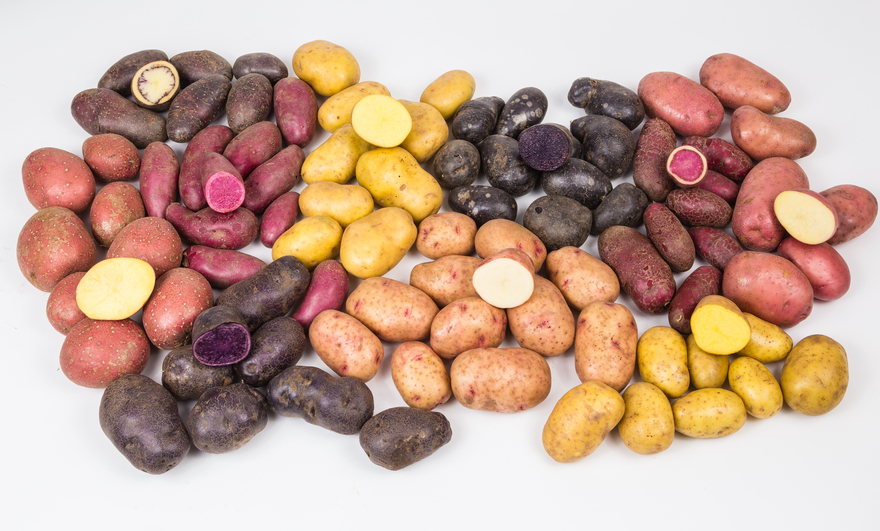
Potato House pictures: Skea Organics
There’s a new destination for seed potato buyers this autumn: Potato House, a new online shop bringing together seed potatoes from Skea Organics, Sarpo and Leary’s Organic Seeds.
Skea Organics, which was featured in the February 2017 issue of KG, is a major grower of organic seed potatoes on the east coast of Scotland. As well as selling direct to gardeners, the company supplies most of the organic seed potatoes sold by catalogues and garden centres. Last year, it also took over the growing of the full range of blight-resistant Sarpo varieties.
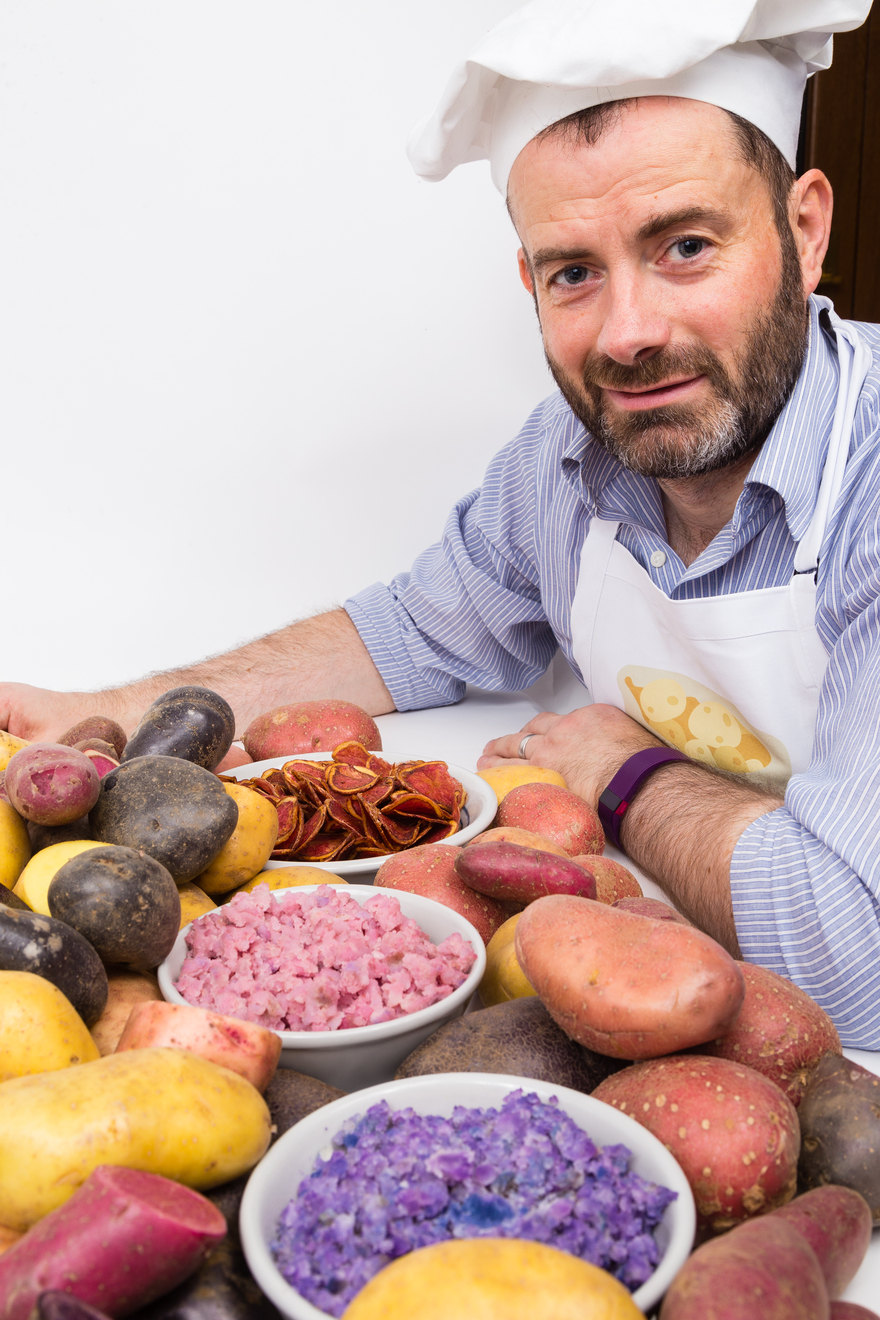
The new website, says Andrew Skea (above), aims to be more gardener-friendly than the old Skea Organics site, which also supplied commercial growers and export customers, and it will offer both organic and non-organic varieties. Its range is particularly strong on disease-resistant, heritage and speciality cultivars, including a rainbow of heritage and modern coloured-flesh varieties.
Check out the full range on offer at http://potatohouse.co.uk/
‘Depressingly small’ 2017 honey crop
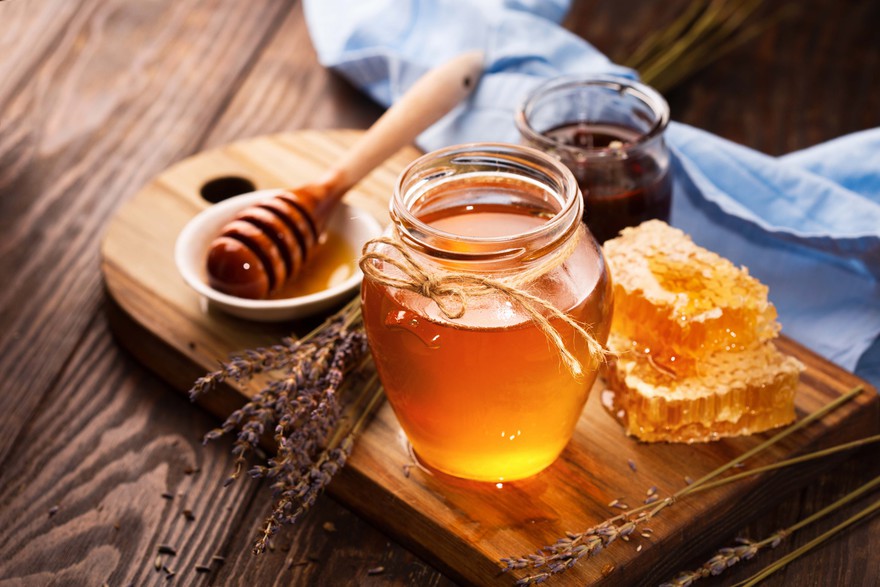
The British honey crop remains worryingly small, says the British Beekeepers Association. Its annual Honey Survey reveals that the average beekeeper in England produced 10.8kg (23.8lb) of honey this year – a decrease of 1kg (2.3lb) on last year’s crop.
The two most productive regions continue to be the South East and the East, while those areas which suffered a particularly wet summer, Wales and the South West, both saw their crop drop to 8.2kg (18lb) per hive. The BBKA says that while weather conditions will always cause variations in the crop, it is the steady overall decline in quantity which is worrying.
“A honey crop of 50 to 100lb was typical when I started beekeeping in the 1950s,” says Job Hobrough, who was recently awarded his BBKA certificate for 60 years of beekeeping. “In those days farmers underplanted crops with clover to nourish the land; nowadays there just isn’t time or space for this style of farming. I think it is having a huge impact on the honey crop, by reducing the forage available not just to honey bees, but all our insects.”
BBKA Chairman Margaret Murdin says: “Everyone can play a part in helping honey bees and all the other insects they love such as butterflies and bumblebees by planting the right sort of flowers and shrubs. Check the label to see that anything you plant will be rich in nectar and pollen, as not all plants are equal in this respect. A crocus is so much better for bees than a daffodil, for example.
“Our survey shows that suburban gardens and urban rooftops produce some of the best honey crops, so how we garden really can make a difference.”
Find out more at https://www.bbka.org.uk/news_and_events/depressingly_small_honey_crop_from_british_beekeepers_
Best blooms in Britain
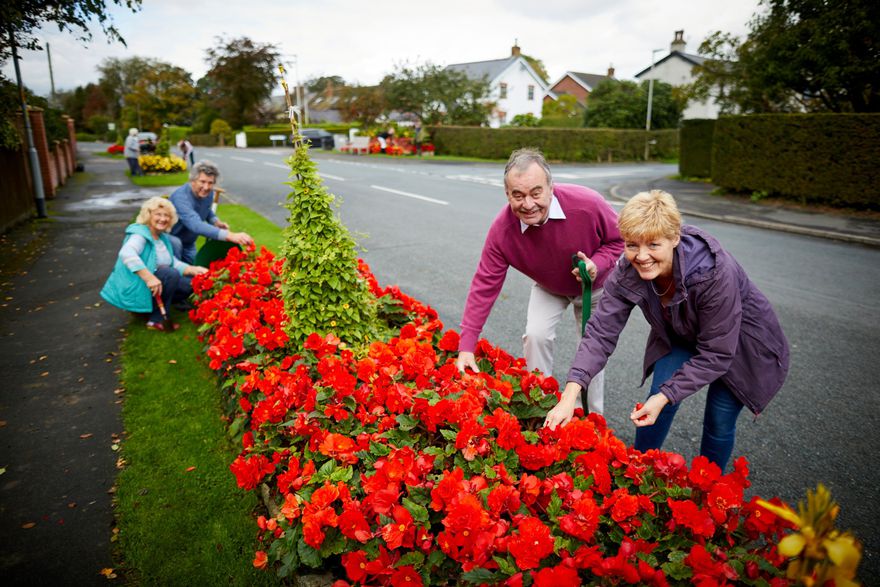
Elswick is blooming marvellous! Pictures: RHS/Mark Waugh
The residents of Elswick in Lancashire are celebrating after being named Champion of Champions in RHS Britain in Bloom 2017, seeing off competition from 77 other communities across the UK. Groups are marked on three key criteria: horticultural achievement, community participation and environmental responsibility, and in addition to the category award, Elswick won a Gold Medal for the exceptionally high standards it achieved.
At the turn of the millennium, the village was blighted by litter, vandalism and antisocial behaviour. Now dubbed ‘The Village of Flowers’, Elswick impressed the RHS judges with its high-impact floral displays and 1000-strong support base. The group, which involves Elswick Parish Council, village organisations and around 50 volunteers, is also working to restore the village’s heritage. They have recreated a community orchard with nearly 50 fruit trees and beehives, a wildflower meadow, and the ‘Avenue of Trees’ depicted in a 1916 book about the area.
Read more at http://press.rhs.org.uk/RHS-Outreach/Press-releases/Lancashire-Village-Crowned-Champion-of-Champions-i.aspx
Bumper year for foragers
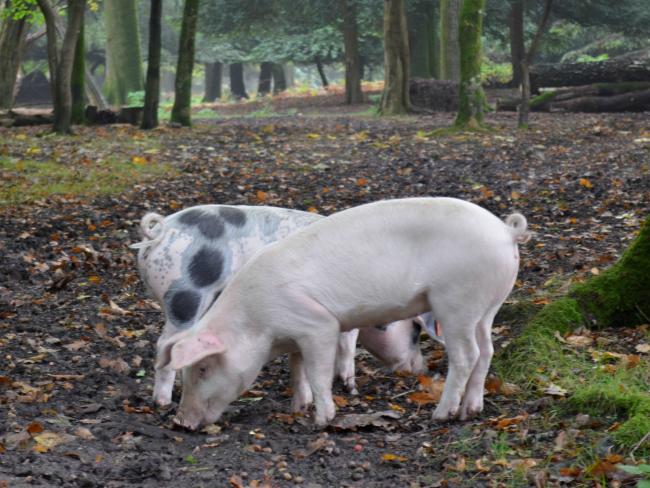
Pigs foraging in the New Forest. Picture: Forestry Commission England
This has been a particularly good year for berries – the result of a warm spring followed by a wet summer – and it’s also been a ‘mast’ year for oak trees. In the New Forest, the ‘pannage’ season has been extended beyond its usual 60 days because there are so many acorns.
Pannage is an ancient custom still followed by the New Forest’s commoners, who are entitled to turn their pigs out into the forest during the season. Pigs love acorns and do a vital job in clearing them up, as they are poisonous for the ponies and cattle that roam free in the forest. This year the pigs have been given an extra month to rummage; the pannage season, due to end on November 12, has been extended into December.
Masting is a natural phenomenon where some tree species produce very large crops of seeds in some years. It’s not entirely understood why; as with berry gluts, it’s thought to be affected by the weather, but it may also be that the trees benefit by concentrating their reproductive efforts in particular years. Mast years also affect other tree species, notably beeches, but different species do not necessarily have mast years concurrently.
Human foragers can also eat acorns – they are edible as long as you wait until they are fully ripe and then leach them to remove the tannin. They can then be roasted, made into a coffee substitute, added to stews or ground into flour. You’ll find instructions at https://www.woodlandtrust.org.uk/blog/2016/10/edible-acorns/ Also on the foraging menu this month are beech nuts, chestnuts, hazelnuts, pine nuts, sloes, crab apples, hips, haws, and whitebeam and rowan berries.
Find out more at https://www.forestry.gov.uk/newsrele.nsf/webnewsreleases/089ae6b22faeb25d802581bd003b505a

